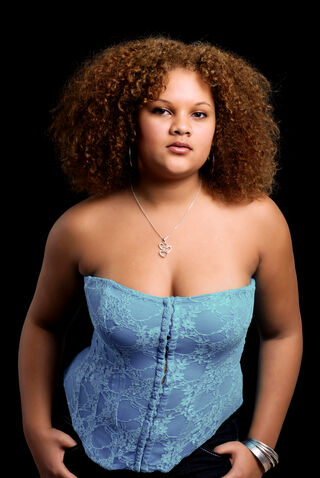Sex
What Sex Looks Like for Black Women
Recent studies highlight Black women's partnered sexual pleasure.
Posted March 9, 2021 Reviewed by Devon Frye
What if the gender and racial identity with which you identify and the positive sexual experiences you had were ignored by sexuality scientists? What if the most common sexuality topics studied about the group with whom you identify seemed to be exclusively focused on (unplanned) pregnancy and sexually transmitted infections (STIs)? Do you think your entitlement to pleasure with sex would be negatively impacted? Would you feel the racist stereotypes associated with your racial and gender identity hopelessly stuck in American society?

In celebration of National Women’s History Month (and International Women’s Day on March 8th), I wanted to center this month’s blog on a much-needed discussion regarding what American Black women experience in their sexual relationships. While sex therapists like myself see Black women in treatment discussing all aspects of dating, relationship and sexual issues, queer identity, and/or issues that might come up in their interracial partnerships, there has been a dearth of studies exploring Black women’s erotic and sexual pleasure.
Thankfully, there is a brand new study by Ashley Townes et al. entitled "Partnered Sexual Behaviors, Pleasure, and Orgasms at Last Sexual Encounter: Findings from a U.S. Probability Sample of Black Women Ages 18 to 92 Years" in The Journal of Sex and Marital Therapy. The study exclusively focuses on American Black women’s partnered sexual pleasure and orgasms, bringing us factual information about a group long excluded from academic research. Dr. Townes is a sexuality researcher and educator based in Atlanta. I was fortunate enough to get some of my own questions answered by Dr. Townes, which I’ve edited for the blog below.
In the study, Townes and her colleagues found that over 74 percent of Black women respondents indicated that their most recent sexual experience was with a male friend, significant other, or spouse. In other words, these partners were known to the women and many were intimate partners. According to several researchers and authors, including Patricia Hill Collins, Black American women continue to be racially profiled as promiscuous, hypersexual, sexually free, and as having “animalistic” sexuality.
The study emphasizes the ways in which Black women have been oppressed and abused through this framing of their sexuality. These racist stereotypes are part of a longstanding litany of names attributed to Black women, including “Mammy," "Aunt Jemima," "Auntie," "Jezebel," "Sapphire," "Sister Savior," "Diva," and "Freak”—many of which imply a wanton sexual desire to be assaulted—that have continued to be projected on Black women since the original period of slavery in America.
SC: Beyond the sexualized racist stereotypes listed in the study, what are further stereotypes that Black women have to contend with in modern-day media, dating apps, and relationship studies?
AT: The "strong Black woman" stereotype creates an unrealistic expectation of strength for Black girls and women in all areas of their lives. This idea that Black women are not allowed to be vulnerable, weak, in pain, or deal with physical or mental illness actually can lead to greater physical and mental illness; it's as if Black women are not allowed to express their imperfections.
Many of our clients describe this same feeling when they talk about "letting their partners down" when they’re going through a hard time or experiencing loss of desire due to stress and fatigue. They at times even express concern for their therapist when they have to miss a session due to extra work they’re doing in hopes of getting a promotion at work. They worry more about what the loss of the session income will mean for their therapist rather than reflecting on what the impact of wanting or needing to over-deliver at work is on their own mental and physical health.
I also noted that over 92 percent of the women in Townes' study identified as heterosexual. While the study mentioned that most Black heterosexual women choose Black men as partners, the heterosexual Black women we see clinically in my practice are frequently in relationships with men that identify as white and/or brown.
I wonder if perhaps this is due to the fact that more than 50 percent of Townes’ respondents were from the South and my practice is located in the Northeast. The interracial couples who come in to see me or my associates for help frequently bring divergent lenses when it comes to beliefs, values, and rituals related to their sexual desires and practices. Frequently, these gaps in core values can lead to misalignment and conflict in the bedroom.
What was also notable about these latest findings is the fact that most of the women had their most recent sexual experiences with a man they knew, were dating or who was a longstanding partner or spouse.
SC: What do you make of that finding that most of the partnered sexual relationships were with a male partner that the woman knew vs. someone they had just met?
AT: For this finding, I think it is important to highlight the idea of "hookup culture." There has been a thought or belief for decades that Black women are promiscuous and that young people, especially, are engaged in hooking up or sexual exploration with many sexual partners. Less than 2 percent of the Black women in this study had partnered experiences with men they had just met. I think this finding dispels the idea that Black women engage in "riskier" sexual behaviors (i.e., one-nighters).
Sex therapists see a skewed population in terms of the fact that folks coming in for treatment are looking to get therapy for presenting issues like past trauma, neglect, painful penetration, lack of desire, anorgasmia, a recent breakup, or the discovery of a partner’s breaking of a monogamous agreement. Although our therapists will always ask about sexual experiences that have included boundary crossings, abuse, and assault, sometimes our clients will wait until they are several sessions into treatment before revealing past sexual trauma.
As a white cis-gender female therapist, I often wonder whether a Black female-identified client may open up more cautiously in a cross-racial therapeutic relationship than they would with a BIPOC female therapist in the practice. What was surprising to me in this study was the fact that very few Black women reported “unwanted” sex and those that did were in a specific age group. Differently than in a therapy practice where clients at times request to see a particular therapist, study participants are not aware of the researchers’ racial identities. I was curious to learn more.
SC: What reflections do you have on the responses from respondents that the most recent sexual encounters they had were wanted in all but the 25- to 29-year-old cohort of Black women studied?
AT: Overall, less than 1 percent of Black women reported an unwanted sexual experience, and this happened to be reported by women in the 25- to 29-year-old age cohort. We report that a limitation of this study is that women who were invited to participate in the survey and were less comfortable with discussing sexual health may not have consented to participate or may have not answered certain questions... [this limitation], therefore, contributes to limited information or nonresponse bias. As researchers, we do our best to ensure privacy and explain the nature of the study, yet some individuals may remain uncomfortable completing a sexuality questionnaire.
Unwanted sex may include sexual harassment, coerced sex, sexual assault, and sexual abuse. These traumatic experiences are usually kept as secrets, especially if they occurred at a younger age. I often encourage all the therapists I supervise to engage their clients in discussions around boundary crossings from time to time in treatment to ensure that the client is assured that the therapist can hear these stories if they aren’t readily shared in the initial sexual history taking.

Another big taboo subject for many Black women to discuss openly is their participation in BDSM sexual experiences. Having been cast in the aforementioned stereotypes in America, sex that from the outside looks like a recreation of historical chattel slavery scenes might make a Black female kinkster feel extremely anxious about revealing to a therapist anything about their being erotically turned on by these experiences.
I identify as a white ally kink-aware Certified Sex Therapist. I frequently collaborate with clients who identify as kinky on ways to navigate their desires and address the challenges they feel when they are dating or in relationships. I’m highly aware that BDSM can be judged harshly by those who are not part of the kink scene. I was curious about the fact that the sexual behaviors studied by Townes et al. were by and large on a vanilla menu. There are paltry few studies researching sexual practices of Black women in kink and BDSM play.
SC: Are there reasons you chose not to include more kinky sexual behaviors in this study?
AT: The 2018 National Study of Sexual Health and Behavior (NSSHB) was carefully planned and included a range of aspects about sexual/response functions, particularly, pleasure, desire, orgasm, and painful intercourse. There are other results from this nationally representative study exploring kink and BDSM activities experienced by Black women. Here are the results from that other wave of research:
- Public sex: 37 percent
- Role-playing: 20 percent
- Spanking/being spanked: 36 percent
- Using anal sex toys: > 17 percent
- Playful whipping: 17 percent
- Tying up/being tied up: 9 percent
- Having engaged in threesomes: 8 percent
- Lifetime group sex, attending sex parties, sucking/licking a partner’s toes, and going to BDSM parties were uncommon, each: < 8 percent
While few Black women in this last study report being involved in various types of kink-type sex play, it is an area recently explored more publicly by artists like Jeremy O'Harris, whose "Slave Play" took a deep dive into Antebellum BDSM power exchange within interracial relationships. What's more, the sexuality educator and writer Mollena Williams-Haas opened up about her 24/7 slave and muse relationship with her white husband, composer Georg Friedrich Haas, in a NY Times profile.
True erotic pleasure is a deeply personal, creative, transformative, and at times revolutionary act. It’s an honor to read more about Black women’s authentic sexual experiences and to see their pleasure given time, respect, and nuanced exploration by academics in the world of sex research.
References
Townes A, Thorpe, S, Parmer T, Wright,B, & Herbenick, D. (2021): Partnered Sexual Behaviors, Pleasure, and Orgasms at Last Sexual Encounter: Findings from a U.S. Probability Sample of Black Women Ages 18 to 92 Years, Journal of Sex & Marital Therapy, DOI: 10.1080/0092623X.2021.1878315
Townes A, Fu TC, Herbenick D, and Dodge B. (2018, June 14-17). Sexual diversity among black and Hispanic women: Results from a nationally representative study. [Conference presentation]. American Association of Sexuality Educators, Counselors, and Therapists 2018 Annual Conference, Denver, CO.
Rosenthal, L., & Lobel, M. (2016). Stereotypes of Black American Women Related to Sexuality and Motherhood. Psychology of women quarterly, 40(3), 414–427. https://doi.org/10.1177/0361684315627459
Woodard JB, Mastin T.( 2005) Black Womanhood: Essence and its Treatment of Stereotypical Images of Black Women. Journal of Black Studies.;36(2):264-281. doi:10.1177/0021934704273152




